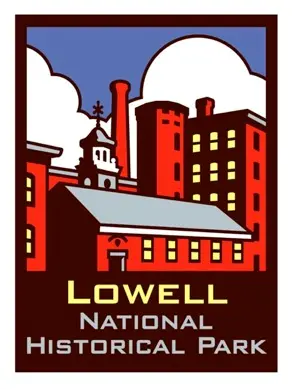Exploring the Immigrant Experience Ties to Massachusetts Curriculum Frameworks
All of our programs have been reviewed to ensure their relevance to state and national standards. (See Education Program descriptions.)
Exploring the Immigrant Experience
Massachusetts State Standards
Grade 4 – Social Studies
- Topic 4 – The expansion of the United States over time and its regions today – The Northeast
- 5. Describe the diverse cultural nature of the region, including contributions … the English in Massachusetts, Rhode Island, Connecticut, Vermont and New Hampshire, subsequent 19th and early 20th century immigration by groups such as Irish, Italian, Portuguese, and Eastern Europeans) and various other immigrant groups from other regions of the world in the later 20th and 21st centuries (e.g., Puerto Ricans, Dominicans, Mexicans, Salvadorans, Colombians, Guatemalans, Brazilians, Haitians, Vietnamese, Cambodians, Chinese, Indians, and Somalis).
Grade 4 – Speaking and Listening Standards, Comprehension and Collaboration
- 1. Engage effectively in a range of collaborative discussions (one-on-one, in groups, and teacher-led) with diverse partners on grade 4 topics and texts, building on others’ ideas and expressing their own clearly.
- b. Follow agreed-upon rules for discussions and carry out assigned roles.
- c. Pose and respond to specific questions to clarify or follow up on information and make comments that contribute to the discussion and link to the remarks of others.
- d. Review the key ideas expressed and explain their own ideas and understanding in light of the discussion.
New Hampshire State Standards
Grade 3-4 – Civics/Government
- SS:CV:4:1.1: Explain the ideal of the United States system of government, e.g. equal rights or tolerance of others. (Themes: A: Conflict and Cooperation, B: Civic Ideals, Practices, and Engagement, C: People, Places, Environment)
- SS:CV:4:1.2: Analyze how government addresses social, political, geographic issues. E.g., local land use decisions or decisions involving human rights. (Themes: A: Conflict and Cooperation, B: Civic Ideals, Practices, and Engagement, C: People, Places, Environment)
- SS:CV:4:2.2: Explain how laws and/or policies are made at local and state levels. (Themes: A: Conflict and Cooperation, B: Civic Ideals, Practices, and Engagement, C: People, Places, Environment)
- SS:GE:4:2.4: Illustrate the ways in which regions change, e.g., changes in local neighborhoods or changes in the United States through westward expansion. (Themes: C: People, Places, and Environment, E: Cultural Developments, Interactions, and Change, I: Patterns of Social and Political Interactions
Grade 3-4 – US/NH History
- SS:HI:4:3.3: Explore how groups have enhanced the art, music, and literature of our nation, e.g., Latinos or Franco Americans. (Themes: E: Cultural Development, Interaction, and Change F: Global Transformation, J: Human Expression and Communication)
- SS:HI:4:5.1: Explain the unique contributions of different ethnic and religious groups to New Hampshire history and culture, e.g., the Shakers or the French Canadians. ( Themes: E: Cultural Development, Interaction, and Change J: Human Expression and Communication I: Patterns of Social and Political Interaction), Practices, and Engagement, I: Patterns of Social and Political Interaction)
- SS:HI:4:5.4: Explore attitudes towards diversity, e.g., segregation or inclusion. (Themes: E: Cultural Development, Interaction, and Change I: Patterns of Social and Political Interaction)
- SS:HI:4:5.5: Describe the reasons why various groups have come to the United States, e.g., enslavement or economic opportunity. (C: People, Places, and Environment, F: Global Transformation, H: Individual, Equality, and Authority)
Grade 3-4 – World History
- SS:WH:4:5.1: Describe different ways that societies around the world express their values and beliefs through practice, e.g., festivals and dress. (B: Civic Ideals, Practices, and Engagement, I: Patterns of Social and Political Interaction)
Common Core State Standards
Speaking and Listening Standards K-5
Grade 4:
- 1: Engage effectively in a range of collaborative discussions (one-on-one, in groups, and teacher-led) with diverse partners on grade 4 topics and text, building on others’ ideas and expressing own clearly.
- C: Pose and respond to specific questions to clarify or follow up on information, and make comments that contribute to the discussion and link to the remarks of others.
- D: Review key ideas expressed and explain their own ideas and understanding in light of the discussion


